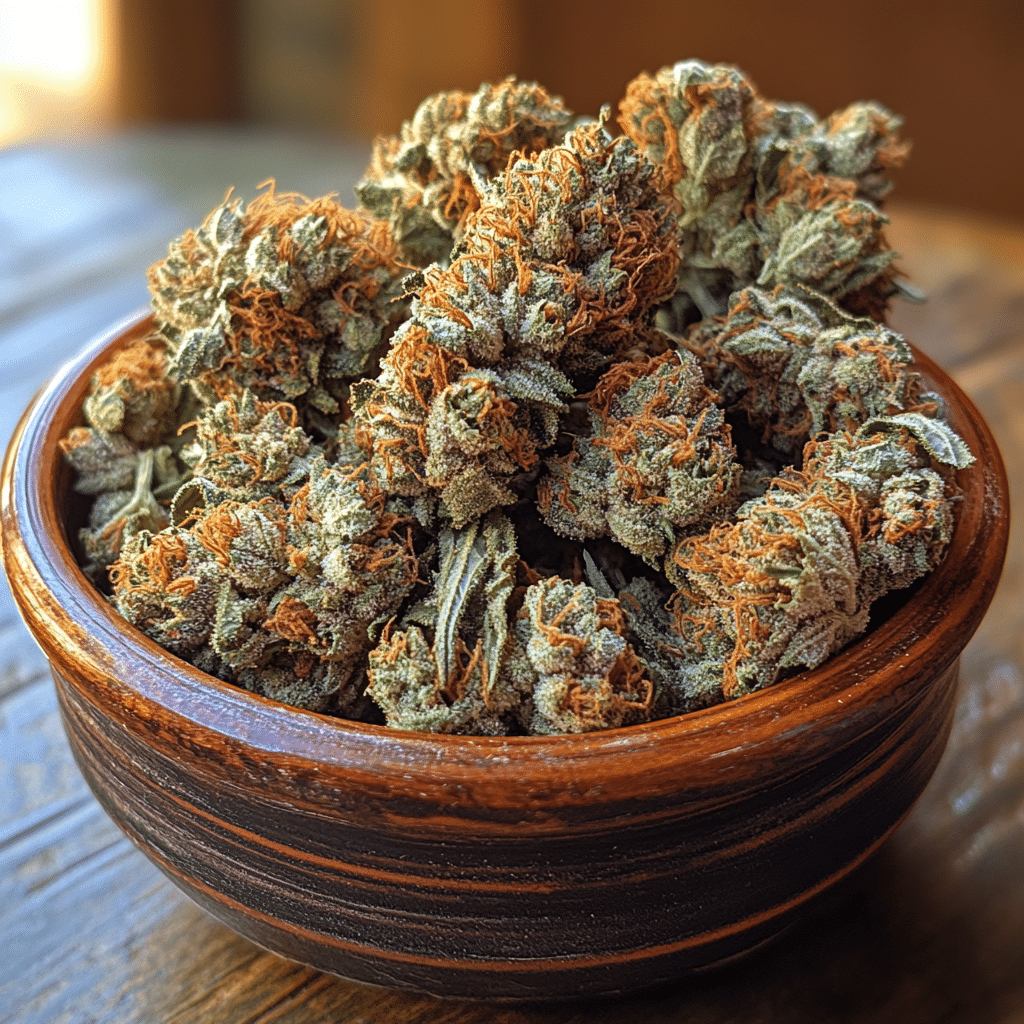As cannabis use becomes more common and accepted in society, a pressing question hangs in the air: can you get addicted to weed? It’s vital to understand the nature of cannabis dependency for both users and their families. With compassion, we’ll delve into the science behind dependency, explore its real-life implications, and reflect on the broader effects of cannabis in our lives today. This compassionate examination aims to foster support for parents navigating the challenges of addiction.

1. The Science Behind Cannabis Dependency
Cannabis impacts the brain’s endocannabinoid system, which plays a pivotal role in regulating mood, memory, and pain sensitivity. The National Institute on Drug Abuse (NIDA) reveals that about 9% of cannabis users may develop cannabis use disorder (CUD), a number that jumps to around 25% among daily users. Recognizing these statistics can provide clarity for parents who worry over their children’s habits.
Understanding Tolerance: Regular weed users tend to build a tolerance, meaning they require more of the substance to feel the same effects. This cycle can lead to increased consumption, making it difficult for some young people to recognize when their usage has crossed the line from casual enjoyment to dependency.
Withdrawal Symptoms: Although generally milder than those associated with alcohol or opiates, withdrawal symptoms do exist. When someone stops after prolonged use, they may experience irritability, anxiety, and sleep disturbances. These effects can complicate the transition to a drug-free life, presenting significant challenges for both individuals and their families.
The Role of Genetics: Genetics can play a key role in whether someone develops a dependency. Research suggests that certain individuals may be predisposed to addiction based on their genetic makeup. For parents, this emphasizes the need to keep an eye on family history regarding substance use. Each family has its unique narrative, and understanding this can help guide meaningful conversations with children about their habits and choices.

2. How Cannabis Coexists with Other Substances
To understand if can you get addicted to weed, it’s crucial to consider its interaction with other substances, especially alcohol. How cannabis affects users can vary significantly based on their existing habits.
What Happens When You Stop Drinking Alcohol? Some people turn to cannabis as a substitute for alcohol, particularly when trying to maintain sobriety. Anecdotal reports suggest that cannabis can alleviate anxiety related to alcohol withdrawal but caution is necessary. While it can provide temporary relief, it may lead to its own dependence.
Case Example: Personal stories abound of individuals who detoxed from alcohol using cannabis. For instance, Holly Whitaker, an advocate for sobriety, often discusses how transitioning to cannabis helped some individuals manage their cravings. Yet, these experiences aren’t universal. They highlight both the potential benefits and pitfalls, underlining the need for thorough understanding before making choices.
3. Real-Life Implications of Cannabis Use
To grasp the full implications of cannabis dependency, we must explore its effects across various demographics. These impacts often reveal the broader societal context in which cannabis now resides.
Youth and Cannabis: Brands like Cookies and Spinfuel promote cannabis use particularly among younger adults. This trend raises concerns about early dependency, especially since adolescents’ brains are still developing. Parents should be vigilant about marketing’s influence and engage in conversations about responsible choices.
Workplace Policies: Many companies are beginning to alter their workplace policies regarding cannabis. Google and Starbucks, for example, have started adjusting their cannabis-related hiring practices, acknowledging societal shifts around cannabis usage. This reflects an emerging acceptance that can also complicate conversations about addiction.
4. Can You Overdose on Weed? Demystifying the Risks
Talk of cannabis overdoses can stir fear amongst parents and seasoned users alike. However, it’s essential to understand the truth behind these claims.
What Overdose Truly Means: Unlike opioids, cannabis typically doesn’t result in fatal overdoses. However, excessive consumption—especially through edibles—can lead to distressing experiences, including severe anxiety and panic attacks. As such, mindful usage is crucial for all, particularly novice users who may not recognize their limits.
The Impact of Potency: The cannabis market has seen a surge in highly potent concentrates and edibles. This potency can easily take novice users beyond their comfort levels. Understanding the risks tied to these stronger forms is vital, particularly for upcoming generations learning to navigate cannabis responsibly.
5. How to Get Weed Out of Your System: Fact or Fiction?
The process of eliminating cannabis from your system might be a mystery to many. Here, we delve into practical information that could guide those considering cessation.
Detection Times: The duration cannabis lasts in one’s system varies widely. Factors such as frequency of use, metabolism, and consumption methods all influence this timeline. For users subject to drug tests, knowing this information can be especially critical.
Detox Methods and Myths: Various “detox” products claim to expedite the removal of THC from the body, but many of these are unproven. Instead, maintaining a healthy diet and staying hydrated are science-backed strategies to support natural detoxification. Understanding these facts is increasingly important for users hoping to shift their relationship with cannabis.
As society’s acceptance of cannabis continues to progress, so does our understanding of its potential for addiction. Recognizing the risks associated with cannabis use empowers individuals and their families to engage in informed decision-making. For parents, fostering open lines of communication about substance use is key. Our organization, Mothers Against Addiction, stands ready to support those navigating the challenging waters of addiction, ensuring no one feels alone in this journey.
In the end, we invite you to share your experiences, stories, and insights as we work together to create a community of understanding and resilience. Let’s build a future where we can discuss addiction openly and compassionately, providing the necessary support for those who need it most.
Can You Get Addicted to Weed?
Unpacking the Stats
When discussing whether you can get addicted to weed, it’s essential to consider the numbers. Recent studies suggest that approximately 9% of users may develop a dependency. That percentage climbs to 17% for those who start using in their teens. With such data in mind, it’s critical for parents, especially those familiar with issues like Signs Of postpartum depression, to stay alert about substance use patterns in younger demographics. Understanding this can provide a foundation to recognize when a child’s behavior might shift into worrisome territory.
Did you know that the cannabis industry is booming, with famous brands like Kidz Bop even jumping into the mix? You heard that right! To clarify, while who Owns Kidz bop isn’t about cannabis directly, cultural trends often intertwine, making conversations around drug use more accessible, especially for kids who are heavily influenced by media. Additionally, some parents might find solace or clarity through engaging activities while navigating these themes; perhaps watching a good movie, such as Now You See Me, can spark good discussions about choices and consequences.
Signs of Dependency
To dig deeper into whether you can get addicted to weed, let’s chat about the signs of dependency. People might notice changes in their routines, emotions, or appetite. Interestingly, cannabis use can sometimes lead to behaviors resembling those found in individuals with certain mental health issues. Checking out a personality disorder test can provide insights into how addiction and personality traits relate. This connection can be crucial for a parent trying to guide their child through such challenges.
Let’s sprinkle in some random trivia related to social interactions during tough times. For instance, the concept of a Giggly squad may resonate with our human need for connection, even during our struggles. Friends often lean on each other for support, especially when things feel overwhelming, like dealing with substance use in yourself or others. Meanwhile, keep tabs on current events—like when Hong Kong tourists got trapped in a bus with an unhinged individual—reminds( us how unpredictably life unfolds, but also how important it is to remain vigilant and supportive of one another.
Understanding whether you can get addicted to weed isn’t just a matter of statistics or occasional use stories. It’s about drawing connections between our habits and mental health. Just as the Ohio board Of Pharmacy keeps watch over medicinal use, being aware of the nuances of weed can help us foster a healthier relationship with substances. After all, knowing when to reach out to resources or seek help, whether for addiction or other urgent matters like suicide by Doctors, is a part of safeguarding our loved ones. So, stay informed and engaged, and keep the conversation going!





























